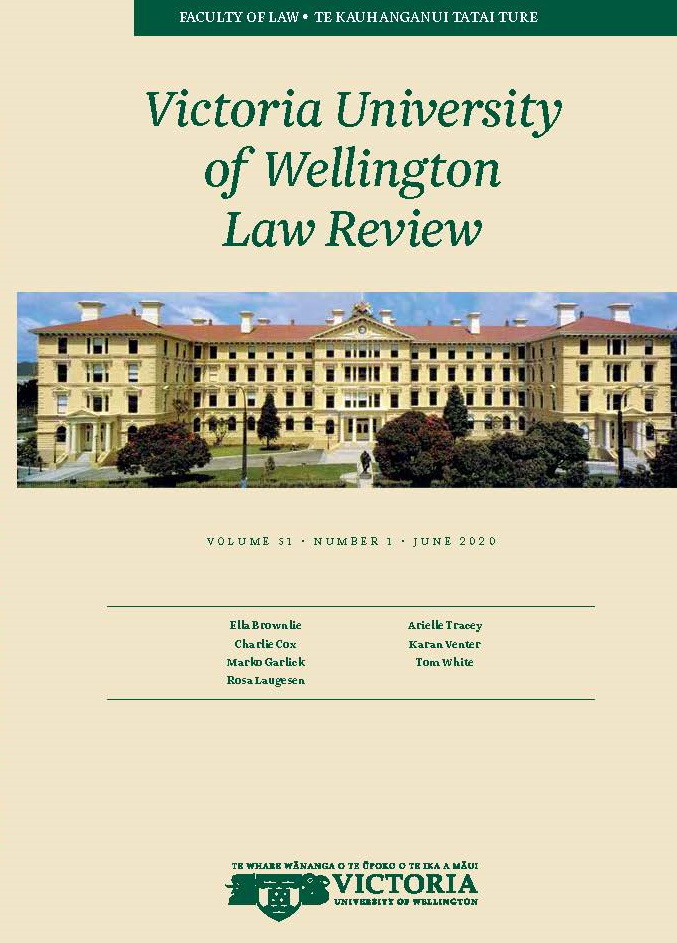Stepping Out of Bounds: The Over-Prosecution of Recreational Athletes in Light of DFSNZ v XYZ
DOI:
https://doi.org/10.26686/vuwlr.v51i1.6518Abstract
DFSNZ v XYZ presents a worrying precedent for anti-doping law. That case arose after New Zealand's anti-doping enforcement body, Drug Free Sport New Zealand (DFSNZ), expanded its jurisdiction over recreational athletes. It did so by internal administrative decision and without notice. This action was upheld in DFSNZ v XYZ by a majority of the Sports Tribunal resulting in an unsuspecting recreational golfer being banned for one year. The decision upheld DFSNZ's extension of onerous obligations and invasive testing powers designed for elite athletes to the large proportion of ordinary New Zealanders who partake in recreational sport. This article critiques the XYZ decision on two bases: (a) DFSNZ's illegitimate expansion of its jurisdiction to recreational athletes by mere administrative policy change; and (b) the pitfalls of extending a regime designed for elite athletes to recreational athletes. The World Anti-Doping Agency (WADA) has developed a new World Anti-Doping Code which will come into force in January 2021. The 2021 Code creates a new two-tiered system which treats "athletes" and "recreational athletes" differently. This article analyses the new Code and critiques its shortcomings with regards to defining the Code's jurisdiction and ensuring a proportionate response to doping in recreational sport. WADA's new code is a step in the right direction but fails to go far enough to align with the participation, health and education objectives of recreational sport.
Downloads
Downloads
Published
How to Cite
Issue
Section
License
Authors retain copyright in their work published in the Victoria University of Wellington Law Review.


